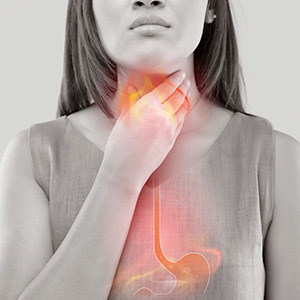
What is GERD?
GERD, short for gastroesophageal reflux disease, is a digestive disorder that affects the lower esophageal sphincter (LES). The LES is a band of muscle located at the bottom of the esophagus that acts as a valve between the esophagus and stomach. It occurs when the LES becomes weak or relaxes too often, allowing stomach acid to flow back into the esophagus.
How do you get GERD?
While it can occur in anyone, it is more common in people who are obese or pregnant, smoke or take medications such as aspirin, ibuprofen, or steroids. It can also be caused by a hiatal hernia – a condition in which the stomach pushes up through the diaphragm and into the chest.
What are the symptoms of GERD?
It can cause various symptoms, including heartburn, acid reflux, nausea, vomiting, and chest pain. It can also lead to more severe problems such as tooth decay, esophageal damage, and asthma.
How do you prevent GERD?
There are several ways to prevent GERD, including losing weight if overweight or obese, avoiding smoking and alcohol, and avoiding medications that can aggravate your symptoms. You can also try raising the head of your bed 6-8 inches to keep stomach acid from flowing back up into your esophagus while you sleep.
If you are overweight or obese, one of the best things you can do to prevent it is to lose weight. Carrying excess weight around your waist can put pressure on your stomach and LES, leading to GERD.
Smoking and alcohol consumption can also aggravate symptoms. If you smoke, quitting smoking can help reduce your risk of GERD. And if you drink alcohol, try to stick to moderate levels – no more than one drink per day for women and two drinks per day for men.
How do you treat GERD?
If it is left untreated, it can lead to more severe health problems. However, GERD can often be treated successfully with lifestyle changes and over-the-counter medications. In some cases, it may require prescription medications or surgery.
By following these simple tips, you can help reduce your risk of GERD and keep your digestive system healthy and functioning correctly.
Certain medications such as aspirin, ibuprofen, and steroids can also aggravate GERD. If you need to take any of these medications, talk to your doctor about alternatives that may be less likely to cause it. You can also try raising the head of your bed 6-8 inches to keep stomach acid from flowing back up into your esophagus while you sleep. This can be helpful for people who suffer from GERD at night.
By following these simple tips, you can help reduce your risk of GERD and keep your digestive system healthy and functioning properly. GERD, short for gastroesophageal reflux disease, is a digestive disorder that affects the lower esophageal sphincter (LES).
The LES is a band of muscle located at the bottom of the esophagus that acts as a valve between the esophagus and stomach. It occurs when the LES becomes weak or relaxes too often, allowing stomach acid to flow back up into the esophagus.
